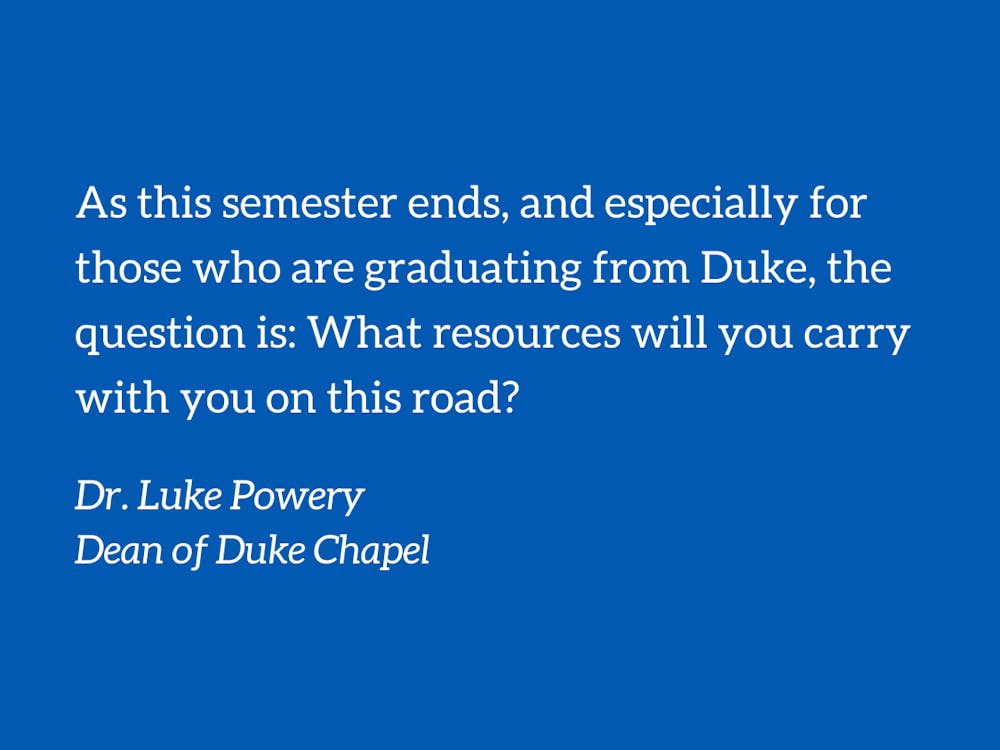Over the last several weeks, I have returned to a reggae song I had on repeat during the COVID pandemic: “Not an Easy Road” by the artist Buju Banton. There is an original version of this song and a remix acoustical version. The musical arrangements are very different, but the same lyrics in both hit home for me these days.
“From the minute of birth you enter this earth
Obstacles in your way to overcome first
Throughout every day they seem to get worse
Oh my God cast away this curse
Everybody is trying to make ends meet…
It’s not an easy road.”
It’s not an easy road, whether you’re thinking of losing loved ones or losing jobs or losing money in the stock market or losing your mind over global wars. It’s not an easy road, no matter who you are or where you come from. You can ponder the global, national, or local realities and should still come to the same honest conclusion — it’s not an easy road.
I’m not trying to depress you. I’m trying to be honest with you, whether you’re 20 years old or 60 years old. I know it may be bad enough that you’re slammed with final exams or projects near the end of the semester, and you may not want to hear this message right about now. But it’s the truth and nothing but the truth. Relinquish the lie that life is always luscious.
Poetic fragments speak to this rough road.
Langston Hughes wrote, “Life for me ain’t been no crystal stair.”
Warsan Shire wrote,
“i held an atlas in my lap
ran my fingers across the whole world
and whispered
where does it hurt?
it answered
everywhere
everywhere
everywhere”
Pauli Murray wrote, “I have been enslaved, yet my spirit is unbound. I have been cast aside, but I sparkle in the darkness. I have been slain but live on in the rivers of history.”
These poetic lines are like icons of the real presence of pain. The honesty of poetry captures the reality of human struggle. Phrases from hymns echo this too:
“Through many dangers, toils, and snares, I have already come.”
“I’m climbing up the rough side of the mountain.”
“When I tread the verge of Jordan,
Bid my anxious fears subside…”
For Christians, this week, known as Holy Week, is not an easy road either; it follows Jesus to his execution on a cross. It is a reminder that life leads to death and sometimes at the hands of so-called friends. It makes me want to say what Kendrick Lamar does in his Pulitzer-prize-winning album: “DAMN.” That’s what the rough road may cause you, or even buttoned-up preachers, to say from time to time.
Get The Chronicle straight to your inbox
Sign up for our weekly newsletter. Cancel at any time.
As this semester ends, and especially for those who are graduating from Duke, the question is: What resources will you carry with you on this road? How will you maintain and gain inner strength (what retired Duke professor Craig Dykstra called “soul capacity”) to walk this road? How will you fatten your spirit while living in leaner material times? What will you say, play, or pray?
The Rev. Dr. Martin Luther King, Jr. is known for his civil rights work but so often his spiritual grounding is forgotten or ignored. He knew it wasn’t an easy road, and it took a toll on him as it would any of us. In January 1956, amid the disequilibrium of the Montgomery bus boycott, King received a threatening phone call late one night. He went to his kitchen to make coffee, trying to think of how he could gracefully withdraw from the boycott. And then, he recounted:
“In this state of exhaustion, when my courage had all but gone, I decided to take my problem to God. With my head in my hands, I bowed over the kitchen table and prayed aloud … At that moment I experienced the presence of the Divine as I had never experienced Him before. It seemed as though I could hear the quiet assurance of an inner voice, saying: ‘Stand up for righteousness, stand up for truth; and God will be at your side forever.’”
King’s deepened relationship with God had a profound effect on him. Three nights later, when his home was bombed and his family narrowly escaped injury, he said, “Strangely enough, I accepted the word of the bombing calmly. My religious experience a few nights before had given me the strength to face it.”
I don’t want to be a downer as the academic year closes, but I want you to hear the truth and not fake news. Life isn’t an easy road; it never has been or will be. How will you walk it? What will sustain you as you walk forward? What are your interior resources? What will be your “kitchen table?”
The Rev. Dr. Luke A. Powery is Dean of Duke University Chapel. His column runs on alternate Mondays.

